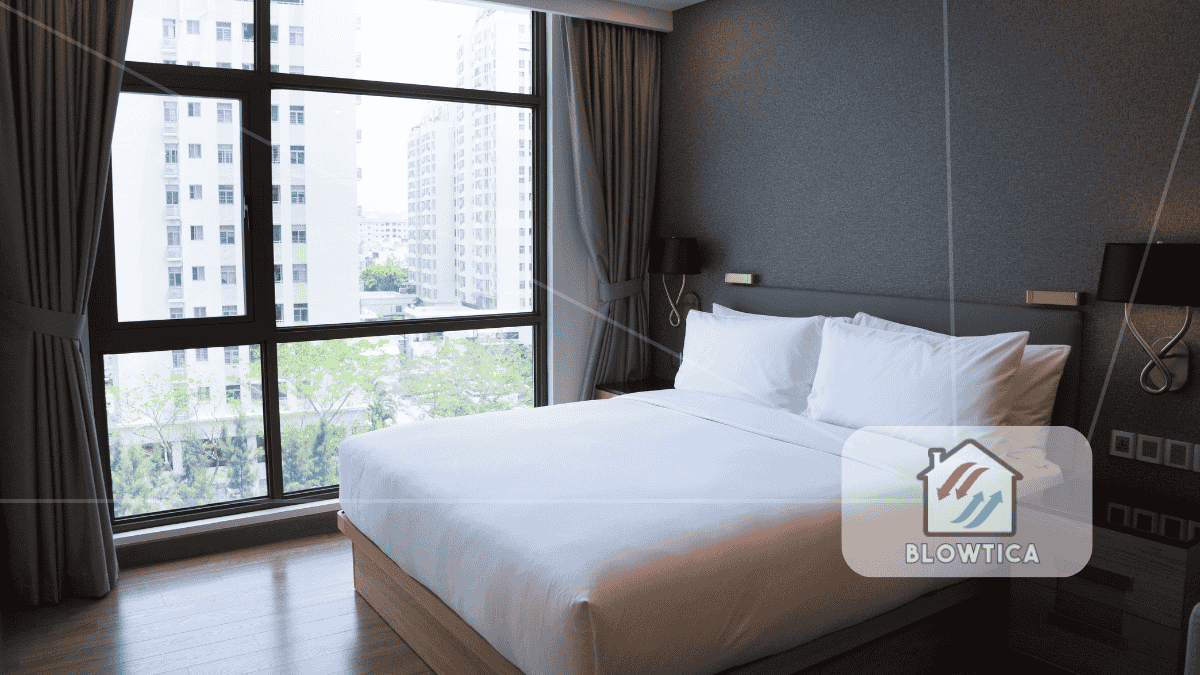
Small room ideas prove that living in a small space doesn’t mean living small. Whether it’s a city studio, a cozy guest room, or a starter apartment, you can still design a space that feels open, calm, and efficient. You just need the right strategy.
This guide is your blueprint for transforming compact spaces using practical, realistic small room ideas. Plus, we’ll sprinkle in some clever DIY home upgrades so you can make your space work harder without spending big.
Why Small Spaces Feel Cramped and How to Change That
Most small rooms struggle with the same visual issues: too much furniture, too many dark corners, and too little cohesion. But the problem usually isn’t the square footage, it’s how it’s used.
To make a room feel bigger, you have to trick the eye. That means:
- Expanding light
- Creating depth and movement
- Reducing visual noise
- Maximizing every inch vertically and horizontally
Now let’s break that down into actionable design moves.
Use Light to Your Advantage (Natural + Artificial)
Light creates space literally and visually. The more light bouncing around a room, the more expansive it feels.
- Go light on color: Whites, creams, pale blues, and soft grays work wonders on walls.
- Reflect light: Hang a large mirror across from your window, or cluster smaller mirrors in a gallery format to amplify daylight.
- Layer lighting: Combine ceiling lights with wall sconces and floor lamps. Avoid one single overhead light, it creates shadows that shrink the room.
DIY Tip: Want to spread more light? Add metallic or high-gloss accents like brass curtain rods, chrome lamp bases, or lacquer trays. These elements quietly reflect and multiply brightness.
Float It, Don’t Floor It
In compact rooms, floor space is king. Freeing it up makes everything feel less cluttered.
- Mount the TV to the wall instead of using a bulky media stand.
- Install floating shelves to store books, plants, or photos without eating up room.
- Swap nightstands for wall-mounted side tables or hanging baskets.
Even rugs should be treated carefully. A rug that’s too small will shrink the room. Choose one large enough that all your major furniture pieces can sit on it together, it creates a unified, expansive look.
Choose Multi-Use Furniture That Works Overtime
If your furniture only does one job, it’s slacking.
- Storage ottomans double as seats and stash zones.
- Extendable tables save space when not in use.
- Murphy beds are perfect for studio apartments or dual-use guest rooms.
Small room ideas that include smart furniture can instantly shift how a room functions. It’s not just about saving space, it’s about making space work smarter.
Customize Storage: Built-In, Hidden, or Vertical
Mass-market storage rarely fits a small room just right. That’s where DIY home upgrades shine.
- Build vertical shelving that stretches from floor to ceiling.
- Tuck drawers into baseboards or under staircases.
- Use the backs of doors for organizers, hooks, or hanging racks.
Want to store out-of-season clothes or extra linens? Try under-bed bins on wheels. Or better yet, lift your bed using risers and hide everything beneath.
Create Zones, Even in One-Room Spaces
Open-plan layouts are common in small apartments, but they can feel messy without clear separation. You don’t need walls to define areas just thoughtful layout and subtle shifts in design.
- Use rugs to create visual boundaries.
- Hang curtains or install bookcases as dividers.
- Group furniture by activity reading, eating, working.
Even color can help. Try using a darker paint color in your “sleep zone” to create depth, then balance it with brighter tones in your living space.
Declutter Ruthlessly and Stylishly
This is where most people struggle. But less really is more.
- Keep surfaces clean display 2–3 items max.
- Store seasonal items out of sight.
- Use baskets, bins, and drawer organizers to maintain order.
Make it visual: imagine your room is a magazine photo shoot. Everything should feel intentional not accidental. If it doesn’t serve a purpose or bring you joy, it’s just taking up room.
Add Movement with Vertical Lines and Texture
Many small room ideas focus on more than just color or size, they also consider direction. Vertical lines draw the eye upward, helping your space feel taller. Texture, on the other hand, adds depth and character.
- Try vertical paneling or wallpaper with stripes.
- Use tall bookshelves or long curtains that hit the floor.
- Mix textures like wood, linen, and matte finishes for visual interest.
Avoid overloading the room with patterns. Instead, layer materials and tones to create richness without chaos.
Let It Breathe: Negative Space Matters
Every item you add should be balanced with space around it. That breathing room is what prevents your space from feeling overcrowded.
- Leave space between the wall and furniture.
- Choose a bed with exposed legs instead of a solid base.
- Use open-back chairs and glass tables to keep sight lines open.
Designers call this “negative space” and it’s your best ally in small-room design.
Bring in Plants—but Keep It Controlled
Plants can add life, movement, and softness to a room but too many becomes clutter. Choose wisely:
- Use one large statement plant in a corner.
- Hang a trailing plant from the ceiling.
- Use vertical planters if floor space is tight.
Greenery balances hard lines and brings in a sense of freshness. Just don’t turn your space into a jungle.
Keep the Color Story Simple and Connected
Using too many clashing colors in a small space can feel chaotic. Stick to a consistent palette throughout the room or better yet, throughout your entire home if you live in a small apartment.
- Use 2–3 base colors max, with one accent.
- Carry that palette across textiles, decor, and wall art.
- Repeat similar tones from room to room to create continuity.
This visual cohesion makes your space feel less chopped up and more expansive.
Use Art Strategically
Skip the gallery wall of mismatched frames and go bold with one or two medium-sized art pieces. Large, single pieces of art can actually make a room feel bigger by creating a focal point.
- Hang artwork at eye level.
- Try unframed canvas for a cleaner look.
- Use mirrors as decorative art two birds, one wall.
If you’re crafty, this is a great place to experiment with DIY home upgrades like homemade canvas art, wall decals, or custom prints.
Final Thoughts: Rethink the Limits
Small spaces aren’t a design challenge, they’re a design invitation. They force creativity. They demand intention. And when done well, they can feel just as grand and satisfying as rooms twice their size.
Use these small room ideas not just as style tweaks, but as strategy shifts. Shift the way you think about space, light, and function. Your home should serve you, not the other way around.
With the right approach and a few smart DIY home upgrades your small room can become your favorite room.









